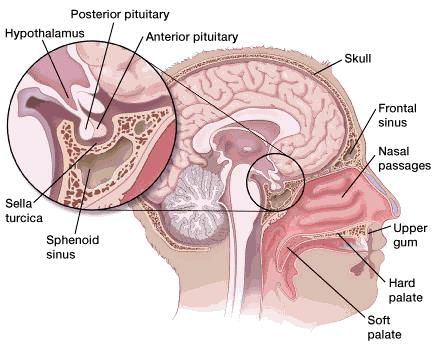Test: Introduction to Endocrine Glands, Hormones & Hypothalamus - NEET MCQ
5 Questions MCQ Test - Test: Introduction to Endocrine Glands, Hormones & Hypothalamus
Which of the following is NOT an endocrine gland?
Hormones secreted by the hypothalamus show their influence on ______.
Which hormone among these is not secreted by an endocrine gland?
Which of the statements given above is/are correct?
i. The hypothalamus produces both releasing and inhibiting hormones that regulate pituitary function.
ii. The hormones produced by the hypothalamus are released directly into the bloodstream without any intermediary system.
iii. Gonadotrophin releasing hormone (GnRH) stimulates the secretion of gonadotrophins from the anterior pituitary.
iv. Somatostatin is a releasing hormone that enhances the secretion of growth hormone from the anterior pituitary.
Assertion (A): Hormones act as intercellular messengers and are produced in trace amounts by endocrine glands.
Reason (R): Endocrine glands are called ductless glands because they lack ducts for hormone transport.
















